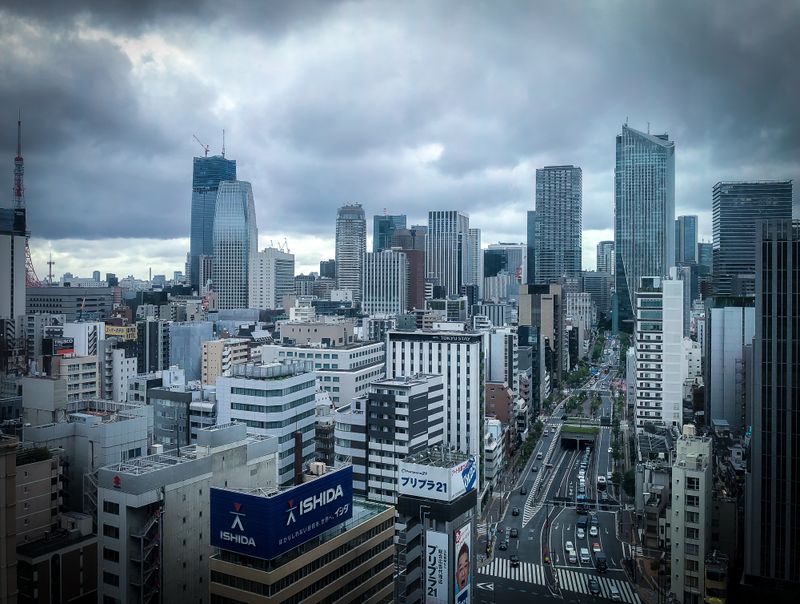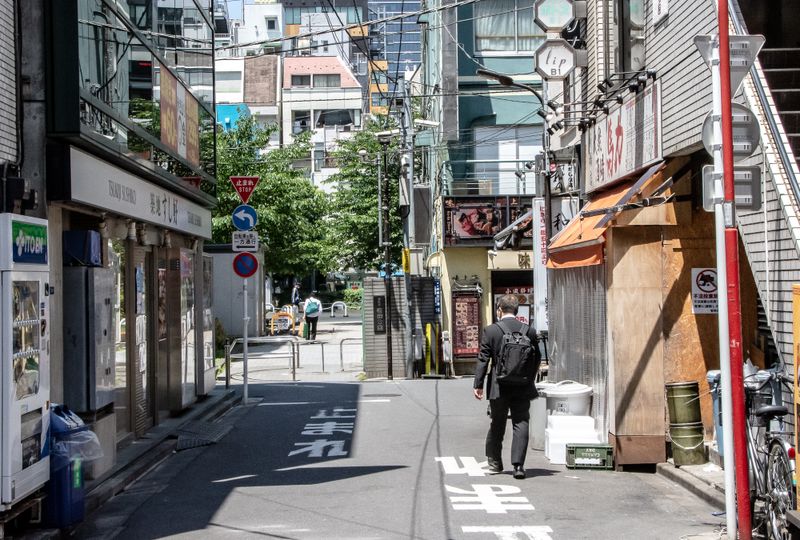Jul 27, 2022
Japan getting to grips with telework, fine tuning needed to go fully remote

Workers in Japan are increasingly getting to grips with remote work culture under the influence of the COVID-19 pandemic, with around one in three workers now experiencing telework to some extent, according to a Cabinet Office survey.
In a June 2022 survey looking at the changes in people's lifestyles and behavior since the outbreak of novel coronavirus, 30.6 percent of those respondents who are employed said that they were working remotely. Responses ranged from almost exclusive remote work to irregular remote work.
In December 2019, prior to the pandemic, only 10.3 percent of workers were said to be engaging in remote work to some extent, according to the survey report. The following May, shortly after the first state of emergency was declared by the Japanese government in response to the spread of the novel coronavirus, that figure jumped to 27.7 percent.
The latest rate is, however, down slightly from a September-October period last year (32.2 percent), according to survey results, perhaps as virus fears and restrictions began to ease from the turn of the year.
The survey gathered samples from over 10,000 respondents targeted evenly (by proportion of population) across seven regions of Japan. Tokyo’s 23 central wards were found to have the highest percentage of people working remotely, at 50.6 percent.

(Quieter streets of Tokyo's Shimbashi district on a weekday lunchtime during the pandemic. Shimbashi is often noted for its daytime population of office workers.)
By industry, “information and communications” was by some distance the largest accommodator of remote work, cited by 75.9 percent of employed respondents. Next was “electricity, gas, and water services,” with 46.4 percent of respondents employed in that industry claiming to be working remotely to some extent.
The art of teleworking
Now well into a third year of life “with corona,” or “after corona,” Japan’s remote work force appears to be fine turning the art of teleworking.
Asked about what challenges they were facing with working remotely, 16.3 percent of respondents said that there weren't any challenges in particular, up from 5.3 percent from a similar survey period in 2020.
Still, the major challenges of remote work have remained unchanged since the early days of the pandemic in the eyes of most teleworking respondents.
In the latest survey, as in the first survey, the switch from paperwork to digital and paperless systems, internal meetings and decision-making processes, and access to internal systems were cited as matters in most need of improvement in order to facilitate the spread of remote work.
The survey also asked teleworking respondents to detail some of the “inconveniences” that come with working remotely.
Again, in 2022 there appear to have been improvements. 12.4 percent of respondents said they experienced no inconveniences with remote work in particular, up from 5.5 percent in 2020.
Below is the list of inconveniences cited by survey respondents and their corresponding percentages in the June 2022 and May-June 2020 Cabinet Office surveys.
| Difficult to consult, report casually within the company | 34.5% | 34.2% |
Lack of communication and stress caused by connection via screen only | 27.1% | 30.2% |
| Difficulty in communicating with business partners, others | 34.0% | 24.9% |
| Security concerns | 26.7% | 23.1% |
| Quality limitations of online meetings, calls | 24.7% | 21.0% |
| Overwork due to blurring of work-life boundaries | 15.7% | 15.7% |
| Out-of-pocket expenses for telecommunications | 17.6% | 15.6% |
| Unable to get a lot of people together in one place | 13.3% | 15.0% |
| Living at home makes it difficult to concentrate on work | 17.8% | 14.6% |
| Need to consider family members who live with you | 13.3% | 12.4% |
We like working from home but we’re not ready to take work on holiday with us
This writer’s words, not those of the survey respondents, but they do seem to echo their sentiment.
Since the apparent successes of rural Kamiyama, Tokushima Prefecture, which beginning in the late 90s, began luring city-weary workers from Kansai into the mountains of Shikoku with the promise of a lifestyle change powered by some of the fastest wireless internet Japan had to offer, concepts of remote work and the “workation” have been eyed by rural governments as weapons in regional Japan’s fight against depopulation.
With the pandemic having all but put a stop to inbound tourism for Japan - and the situation showing little sign of change - remote work and the workation have taken on even greater significance in the eyes of those on the front lines of the battle for regional revitalization.
A cottage industry has since emerged, seeming largely to revolve around sending out workers, from industries that can afford to let the manpower off the leash, for a few days of all-expenses-paid-test-tour frolicking in the hills and pretending to work from co-working spaces that range from rustic log cabins to rooms in four-star resorts.
Nice work if you can get it … paid for by the boss, or better yet, by someone else.
Workation experiences among survey respondents - covering a variety of forms, from extended stays for leisure at business trip destinations to stints at satellite offices in the countryside - appear to be scant however. In the latest Cabinet Office survey only four percent of employed respondents said they had experienced some form of workation.
They have hope though, with nearly 30 percent saying that they would like to have the experience.
The great Tokyo exodus
The pandemic and the resulting office orders to telework perhaps taught many city workers what they already knew - that commuting to and from the office on trains packed to Biblical proportions is emphatically not fun. Maybe it also brought to light something that had perhaps been less obvious - that the process of getting to and from work, and maybe being around people all day, is really exhausting and oftentimes rather pointless.
As a result of the pandemic, 34.2 percent of the June survey respondents living in Tokyo said they were at least somewhat interested in moving out of the capital to somewhere rural. Four percent of respondents had a strong interest in doing so. 36.8 percent said they had absolutely no interest in such a move.
In 2019, prior to the pandemic, those Tokyo residents at least somewhat interested in moving out of the capital stood at 25.1 percent, according to the survey report.
Not the great exodus from city life that some had thought might come during the thick of the virus outbreak then. Despite a significant percentage (24.1 percent) of Tokyo-based survey respondents citing a realization about the possibilities of remote work behind their interest in moving to rural areas, an even larger percentage of those interested - at 46.2 percent the largest in fact - cited work and income as their main concerns regarding the prospect of actually making such a move.
Perhaps more fine-tuning of the remote-work lifestyle needed - and from a safe, commutable distance - then, before Japan is willing and able to go fully remote.
The results of the fifth Cabinet Office survey on changes in people's lifestyles and behavior since the outbreak of novel coronavirus were published on July 22. The survey was conducted online between June 1 - 9, 2022, targeting respondents from 15 to 89 years of age.
Related:
Around 30% of workers in Japan may have failed to report COVID infection to employer, survey
Workation: Revitalizing rural Japan and weary office workers
Tokushima district encourages foreign visitors to mix work and play
You can watch a video about our own workation experience in the beautiful Urabandai region of Fukushima Prefecture on the City-Cost YouTube channel:



0 Comments